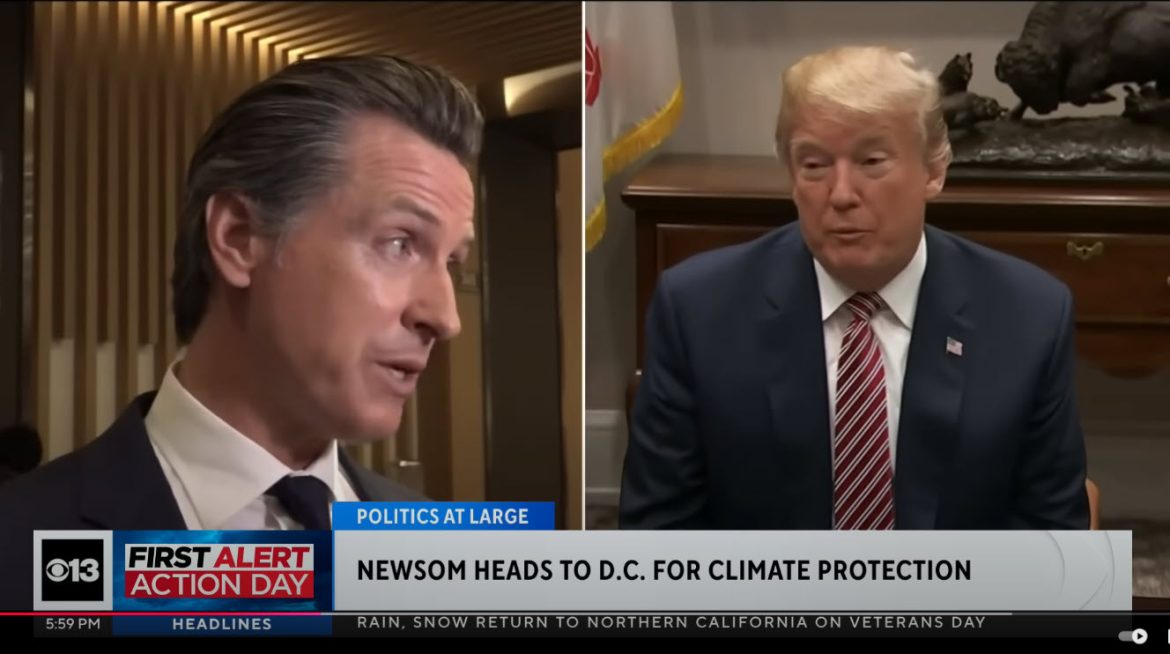As President-elect Donald Trump prepares to take office, Democratic governors across blue states are promising to push back against any policies that clash with their states’ values. In a united front, governors from California, Illinois, New York, Massachusetts, and Minnesota have pledged to shield their constituents from federal policies they view as harmful, particularly in areas such as immigration, abortion rights, and climate change. This strong stance underscores the deep political divisions and foreshadows a tense relationship between the incoming administration and several state leaders.
California Governor Gavin Newsom is leading the charge, recently convening a special legislative session to strategize on defending “California values” against potential federal encroachments. Newsom has positioned California as a “sanctuary state,” where local authorities limit cooperation with federal immigration enforcement. “California will not stand by as policies that endanger our residents and environment are pushed from Washington,” Newsom declared in a press conference in Sacramento. Newsom’s commitment to preserving California’s progressive policies has gained wide support from lawmakers in the state, who worry that Trump’s administration will roll back environmental protections and push for strict immigration enforcement measures.
In Illinois, Governor J.B. Pritzker has voiced similar concerns, pledging to protect his state’s policies on reproductive rights and to push back against any attempts to restrict abortion access. Pritzker has stated that Illinois will continue to uphold the Reproductive Health Act, a state law that protects abortion rights even if federal regulations change. “We will not allow our residents to lose access to safe and legal reproductive healthcare,” Pritzker affirmed.
New York Governor Kathy Hochul also joined the chorus, stating that New York would serve as a “safe haven” for those affected by federal immigration or social policies. She has pointed to New York’s commitment to uphold sanctuary city policies in major urban centers and to maintain healthcare and social support for undocumented residents. Hochul recently introduced initiatives to expand legal resources for immigrants facing deportation and to secure funds for climate resilience projects that could face cutbacks under Trump.
Massachusetts Governor Maura Healey, known for her progressive stance on social issues, warned that Massachusetts would resist any Trump administration policies that threaten LGBTQ+ rights, reproductive rights, and climate action. Healey remarked, “Massachusetts has long led the nation in human rights protections, and we will continue to do so no matter what comes from Washington.”
Minnesota Governor Tim Walz, who was also the Democratic vice-presidential nominee in the recent election, has been more measured in his comments but nonetheless pledged to protect Minnesota’s policies. Walz, acknowledging Trump’s campaign pledge to respect state autonomy, stated, “We’re willing to take him at his word and hope this administration will indeed allow states to make their own decisions on key issues.” Walz emphasized his concerns about healthcare, specifically protecting Medicaid expansions that benefit Minnesotans, and expressed skepticism about potential federal pressure to cut such programs.
The resistance from blue state governors reflects a broader trend of Democratic leaders working to insulate their states from conservative federal policies. Many state officials, aware of Trump’s support base among disaffected Americans, argue that the new administration may overlook the nuanced needs of diverse states. David Drucker, senior writer for The Dispatch, observed that “even in states with bipartisan voter bases, resistance to Trump’s policies could rally Democratic support and draw national attention to progressive state policies.”
Additionally, California’s Gavin Newsom has gone a step further by meeting with officials in the Biden administration to secure support in areas such as climate action and healthcare funding. “California is not alone in this fight,” Newsom stated during a visit to Washington, D.C., where he advocated for protections that would safeguard his state’s social and environmental policies. Newsom’s efforts underscore a strategy to leverage existing alliances and federal partnerships to counterbalance any shifts from the new administration.
Meanwhile, Niall Stanage, a White House columnist for The Hill, noted in an appearance on NewsNation that Trump’s popularity among certain voter demographics signals an ideological shift that Democratic governors are keen to address. “Trump represents a voice for disaffected Americans, and it’s something Democrats in these states need to consider carefully,” Stanage explained. The Democratic governors’ pushback may resonate well with their voter bases but also reflects the party’s challenge to address the growing disconnection between federal and state priorities.
As the inauguration date approaches, blue states are preparing to face possible federal changes with strategies that include legal challenges, policy insulation, and inter-state alliances. These governors are ready to resist any federal overreach that conflicts with their agendas, setting the stage for a prolonged political standoff as Trump’s administration advances its policies.



